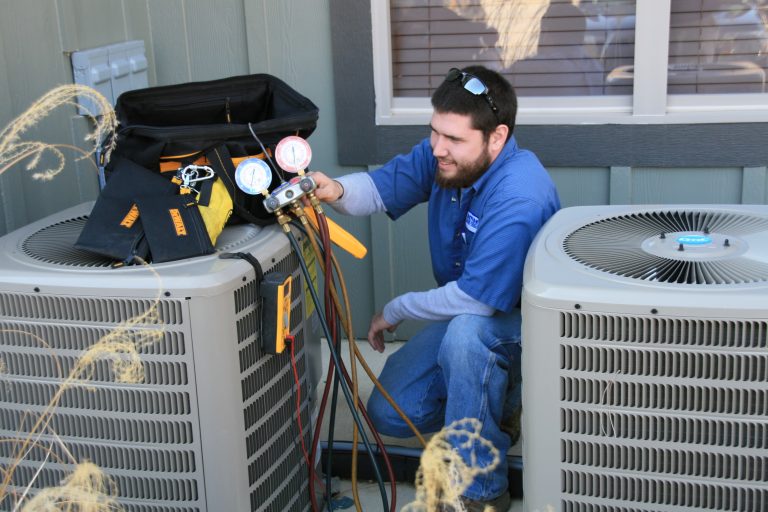Picking the best HVAC contractor is a critical step in guaranteeing your home's heating and cooling systems operate optimally and efficiently. Whether you are putting in a new system, swapping out an outdated one, or merely maintaining your current setup, the contractor you decide on can make all the difference. With so many options available, it can be challenging to locate a capable professional who meets your specific needs.
In this resource, we will walk you through key factors to aid you select the best HVAC contractor for your home. From understanding what HVAC systems are to acknowledging the value of indoor air quality, you will gain knowledge into how to arrive at informed decisions. Moreover, we will explore common HVAC challenges and their solutions, seasonal maintenance guidelines, and how to optimize your system's efficiency, all of which are vital aspects to evaluate when assessing potential contractors.
Grasping HVAC
Heating, Ventilation, and Air Conditioning represents Heating, Ventilation, and Air Conditioning. It is the technology used for the method used to regulate the interior conditions of home and business spaces. An HVAC system is designed to provide convenience by regulating heat, dampness, and air quality, making it vital for preserving a sanitary and pleasant environment. Comprehending the components of heating, ventilation, and air conditioning systems aids resident owners and businesses decide on wise determinations about installation, maintenance, and enhancements.
The primary components of an Heating, Ventilation, and Air Conditioning system consist of a furnace or boiler for warmth, an cooling unit for cooling, and airflow systems for air circulation and air cleaning. These elements collaborate to ensure that the air in a structure is comfortable, properly circulated, and free from pollutants. In addition to temperature control, heating, ventilation, and air conditioning systems can also regulate moisture levels and eliminate dust, pollen, and other allergens to boost indoor air quality.
Regular maintenance is important to the effectiveness and longevity of an Heating, Ventilation, and Air Conditioning unit. It entails regular inspections, servicing, and timely restorations to prevent common difficulties such as breakdowns or performance issues. Property owners and commercial property owners should be diligent in their heating, ventilation, and air conditioning care to not just provide pleasure but also to reduce expenses and lengthen the term of their systems. Understanding how HVAC https://output.jsbin.com/voyasacuva/ is the first action in noticing when it demands service and how to select the best technician for the job.
Typical Heating, Ventilation, and Air Conditioning Problems and Solutions
A common HVAC problems is inadequate heating or cooling. This can stem from a range of factors, such as dirty air filters, duct leaks, or improper thermostat settings. To resolve this issue, regularly monitor and update air filters every 1 to 3 months and ensure that vents are clear. If the issue persists, it may be essential to inspect the ductwork for leaks or have a technician examine the effectiveness of your air conditioning system.

A different issue is strange noises coming from the HVAC unit. These sounds can indicate a variety of problems, from loose components to grave mechanical failures. Pay attention to any thumping, rattling, or sharp whistling noises. If you notice these sounds, it is advisable to turn off the system and consult a qualified HVAC contractor to correctly diagnose and address the problem before it leads to more major damage.
Lastly, poor indoor air quality can significantly influence your comfort and health. Symptoms like allergies, respiratory issues, or stale air may indicate that your HVAC system needs attention. To improve air quality, consider upgrading to high-efficiency air filters, adding air purifiers, or ensuring that your system is in good condition with regular cleanings. Boosting ventilation and humidity control can also contribute to a healthier indoor environment.
Choosing your Best HVAC Solution
Choosing an suitable HVAC system for the home is important for ensuring comfort as well as energy efficiency. Start by assessing the size of your area, since a proper heating & cooling system must correspond the measurements in the home. An small system can fail in maintaining pleasant climate, while an oversized system might cause short cycling, increased stress, along with higher energy bills. Consulting the professional to determine your appropriate size using a load assessment can assist your decision in making an intelligent decision.
Afterwards, consider various different categories of HVAC solutions available. Choices consist of whole-house air conditioners, heat transfer systems, ductless mini-split systems, plus geothermal heating & cooling. click this link here now has its benefits as well as limitations depending on the home’s layout, climate, while energy efficiency objectives. Investigating these possibilities can assist homeowners comprehend which system best serves your lifestyle and budget while providing effective heating and cooling.
Finally, consider regarding energy effectiveness ratings during the process of deciding on the HVAC solution. Search for units with high Seasonal Energy Efficiency Ratio (SEER) ratings for air conditioners and Heating Seasonal Efficiency Factor (HSPF) ratings in the case of heat transfer systems. Energy-efficient systems may have a higher upfront cost but can lead to significant savings in your energy expenses over the years. Combining energy-efficient machines with smart thermostat technology can improve the HVAC system's performance as well as comfort levels across seasons.
